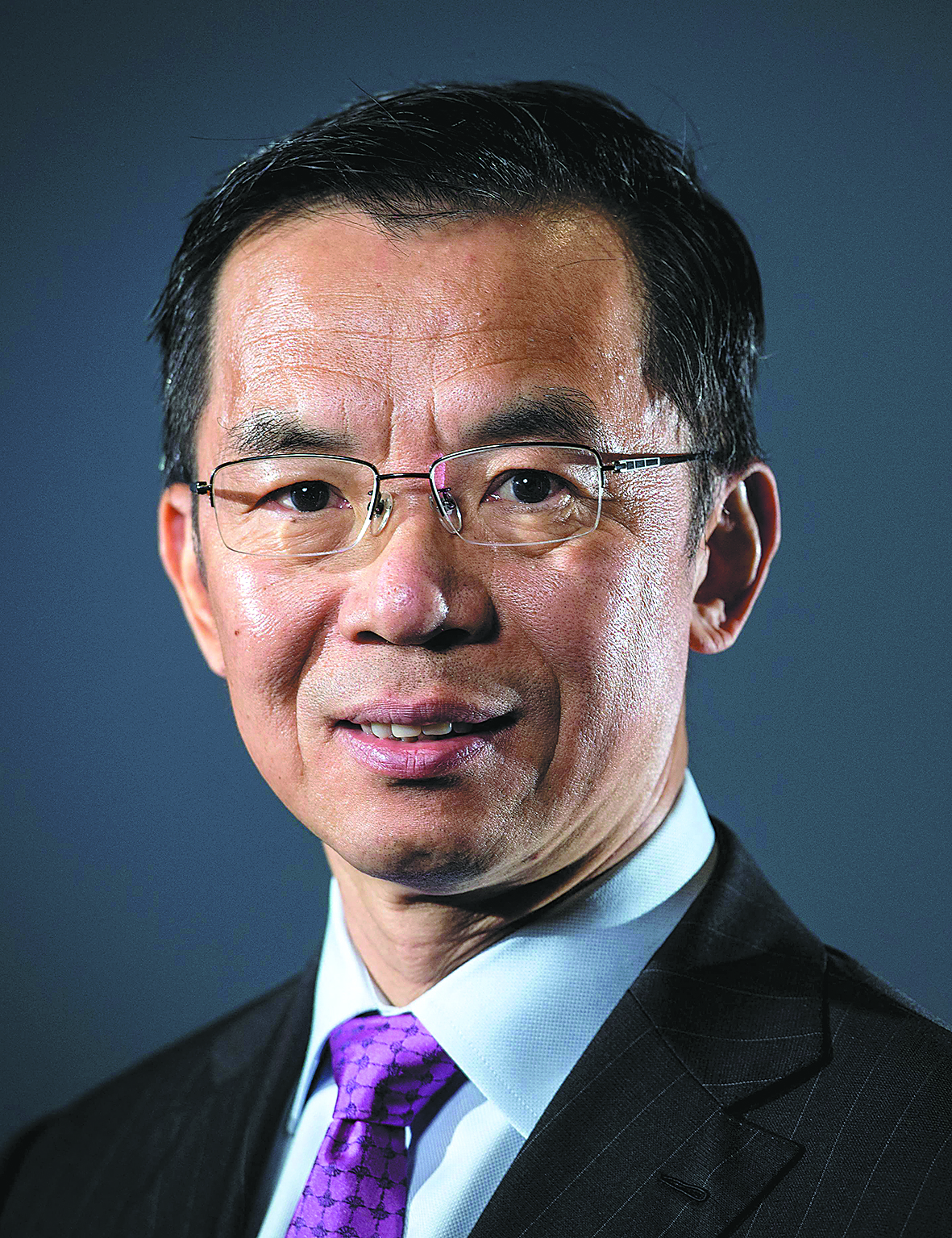 Chinese Ambassador to France Lu Shaye. [Photo provided to chinadaily.com.cn]
Chinese Ambassador to France Lu Shaye. [Photo provided to chinadaily.com.cn]
Relevant departments of the Chinese and French governments are working hard on planning this year's high-level visits between the two countries, said Chinese Ambassador to France Lu Shaye.
Lu, who is also a national political adviser, said there has been a long tradition of exchanges of high-level visits between Beijing and Paris.
In April, French President Emmanuel Macron made a state visit to China.
When concluding his trip to France last month, Foreign Minister Wang Yi said the two sides agreed to roll out high-level mutual visits.
Lu noted that in the past decade, "bilateral relations have reached a new height" due to the strategic leadership and personal push by President Xi Jinping together with then French president Francois Hollande, and in recent years with Macron.
"It is particularly noteworthy that amid the complex international situation and rising impulses in the West to contain China, it is not easy for China-France ties to have sailed upstream," Lu said.
"When looking around the world today, China-France ties could be said to be the most stable and positive among the relationships between the East and the West," he added.
Lu also touched on hot topics such as visa facilitation and improving the investment environment.
In November, Beijing announced a 15-day visa-free policy for short-term stays of French citizens in China, and Paris announced that Chinese holders of a master's degree obtained through study in France would be granted a five-year visa.
This year marks the 60th anniversary of China-France diplomatic ties as well as the China-France Year of Culture and Tourism, and Paris will host the 2024 Summer Olympic Games.
"France should provide more convenience in terms of visas if it is seeking to foster people-to-people exchanges and attract more Chinese tourists to France," Lu said.
It is still difficult and time-consuming for Chinese tourists to obtain visas to France, and the number of flights between the two countries has yet to recover to the pre-pandemic level, meaning that tickets remain quite expensive, he noted.
"The French side is also aware of the problem, and based on our contacts with the French authorities, they are also trying to find a solution. We hope the situation will improve at an early date," he said.
Trade between China and France dropped slightly to $78.9 billion last year amid the overall sluggish international trade situation.
Lu added that if bilateral trade can exceed $100 billion in the next three to five years, it will be "a great thing" and prove to be mutually beneficial.
"I attended the 60th International Agricultural Fair in Paris a few days ago and I had a deep impression that China-France trade has great potential."
Pragmatic cooperation
Talking about bilateral pragmatic cooperation, Lu said the two countries can tap new opportunities in conventional areas of cooperation such as aerospace and nuclear energy, as well as new areas such as agricultural and food products, which have seen great progress in recent years.
During recent bilateral talks, Beijing expressed its hope that Paris would provide a fairer, more just and nondiscriminatory business environment for Chinese enterprises.
Lu noted that some restrictive and discriminatory measures taken by the European Union and France against Chinese companies in the areas of trade and investment still remain in force, such as those against Huawei's 5G products.
The Chinese government is constantly improving market access for foreign companies, and "we expect the French government to work together with us to mutually improve investment environments and further advance bilateral trade and investment cooperation", he said.
In response to the negative cases and problems in China-EU and China-France ties, he said, "We should not be blinded by momentary and negative things, but look ahead, see through the mist and keep a positive mindset."
Lu pointed out that it is a general trend in the world to advance economic globalization, and the EU should not withdraw from economic globalization just because the United States seeks to decouple with China and sever related production and supply chains.
"There is now an unsettling tendency" that Europe is following the US' lead in an increasing number of cases, and is explicitly, implicitly, or unknowingly seeking to "de-risk "China, he noted.
"This is actually an unspoken version of 'decoupling' and breaking the chains," he said.
Recently, some French wine industry associations complained to Lu about China's anti-dumping probe into grape spirits from the EU.
"This is a reasonable and legitimate action taken in accordance with Chinese law and World Trade Organization rules. We will act in accordance with the law," he said.
"This matter is not targeting France alone and is not related to other trade friction or disputes with the EU or with France. It is a stand-alone event."





